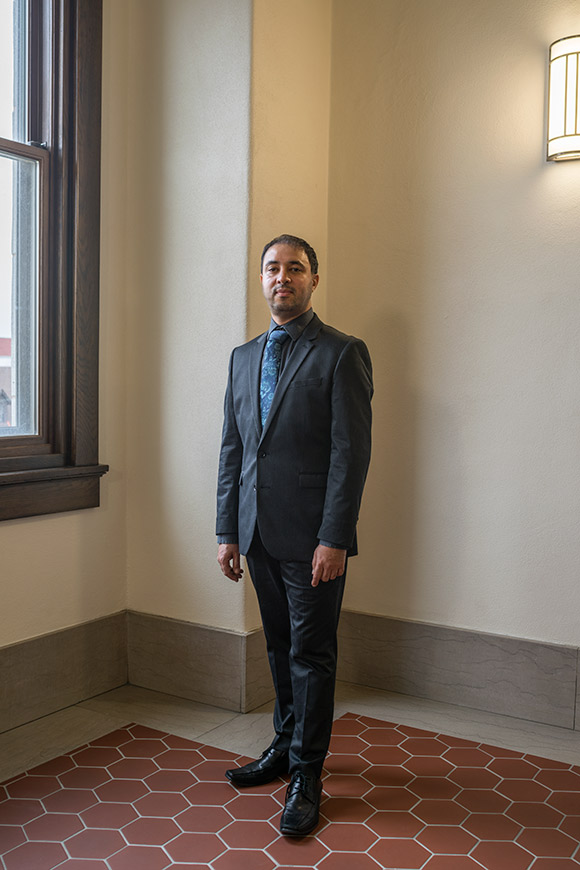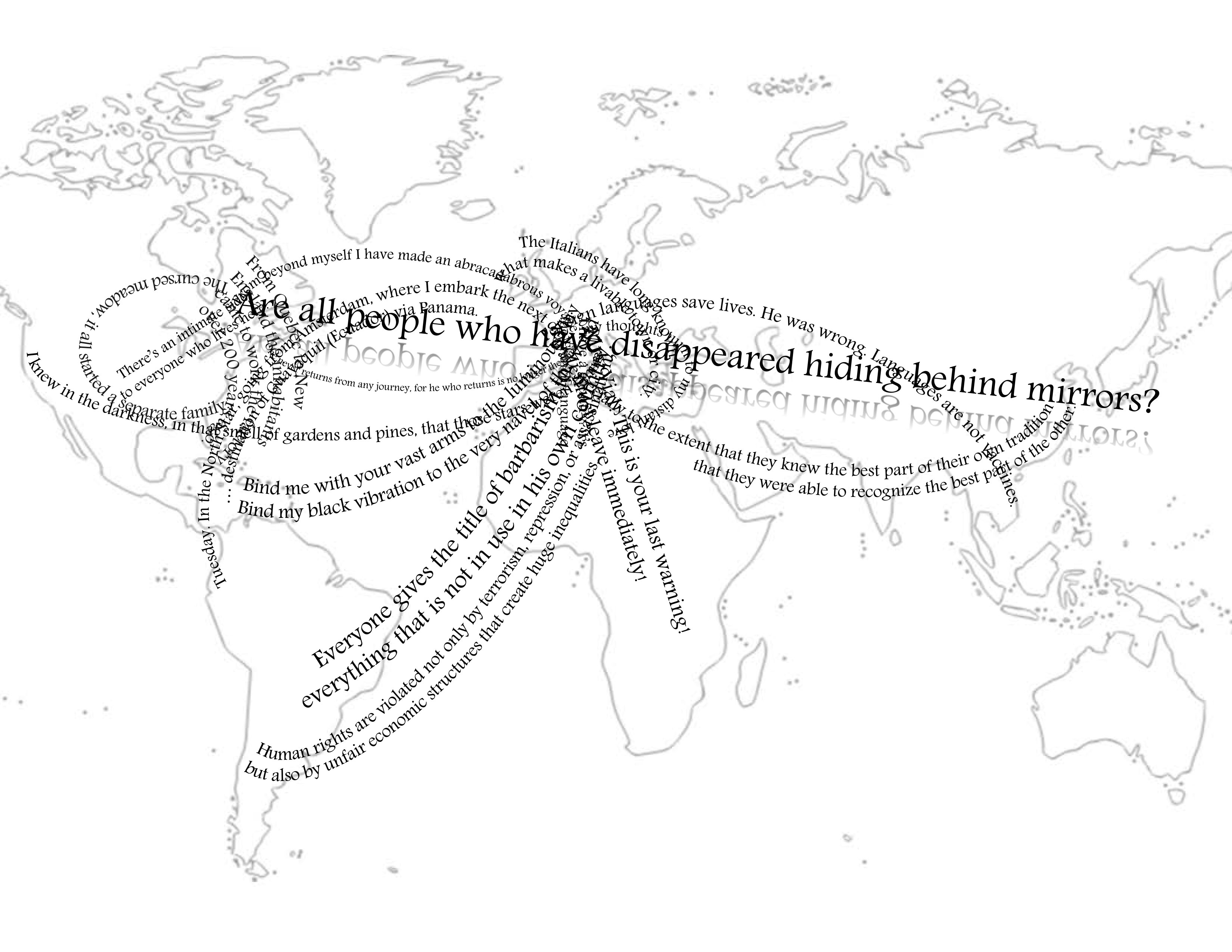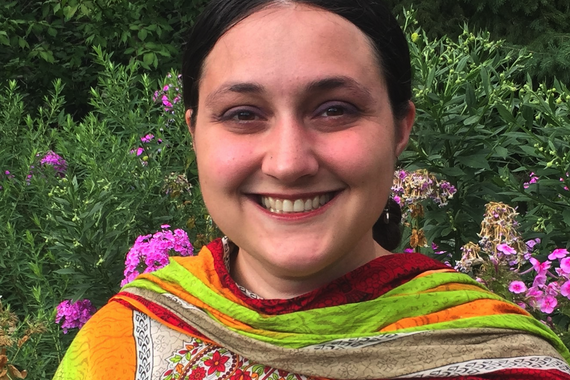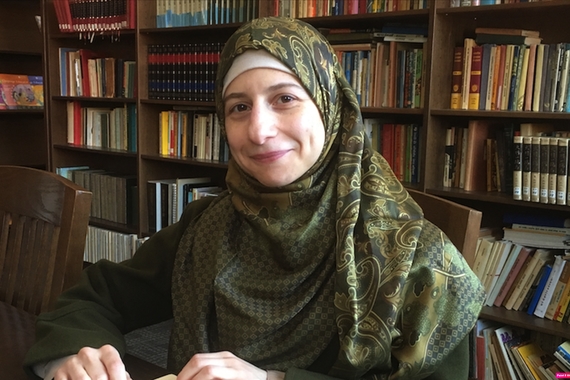On Purpose: Portrait of French & Italian

Global Connections across the Centuries
Montréal-Paris: “From beyond myself I have made an abracadabrous voyage.” (Gaston Miron, L’homme rapaillé, 1970)
China-France: “It was especially to the extent that they knew the best part of their own tradition that they were able to recognize the best part of the other.” (François Cheng, Le dit de Tianyi, 1998)
Buenos Aires-Vatican: “Human rights are violated not only by terrorism, repression, or assassination; but also by unfair economic structures that create huge inequalities.” (Pope Francis, 2009)
France-Ecuador: “Tuesday. In the North Star, going from Amsterdam, where I embark the next day aboard the Boskoop, destination Guayaquil (Ecuador) via Panama.” (Henri Michaux, Ecuador, 1929)
Martinique-France: “Bind me with your vast arms to the luminous clay/ Bind my black vibration to the very navel of the world” (Aimé Césaire, Notebook of a Return to the Native Land, 1939)
Asti-Oakland: “Before returning to Oakland that night I went to smoke a cigarette on the grass of the empty embankment, from the road and the cars. I knew in the darkness, in that smell of gardens and pines, that those stars weren’t mine, that like Nora and our customers in the diner, they scared me. Bacon and eggs, good pay, oranges as big as watermelons, these were nothing, were like those crickets and tree frogs. Was it work to have come? Where could I go now? Throw myself off the breakwater?” (Cesare Pavese, The Moon and the Bonfires, 1950)
Québec-New England: “From Quebec to New England the inhabitants came to work in the factories over 200 years ago. In their Little Canadas with their language and faith, they lived their survival at least for the moment.” (Josée Vachon, “French in America,” 2008)
France-Brazil: “Every one gives the title of barbarism to everything that is not in use in his own country.” (Montaigne, “The Cannibals,” 1580)
Minnesota-Quebec: “There’s an intimate side to everyone living here. The French language has played a role we need to be aware of.” Virgil Benoit, Souvenirs de francophonie au Minnesota, 2017)
France-Africa: “Mrs. Vial! This is your last warning! You must leave immediately! Mrs. Vial! The French army is getting out! Let's go! You will be totally isolated! Think about it, Madame Vial! Think about your family! We’re leaving! You must leave immediately!” (Claire Denis, White Material, 2009)
Blaye-Tripoli: “I hear the gentle song of distant birds,/ and when I leave the song behind/ my thoughts turn to my distant love.” (The troubadour Jaufre Rudel, “Amor de lonh,” circa 1145)
Québec-Hiroshima: “Are all people who have disappeared hiding behind mirrors?” (Robert Lepage, The Seven Streams of the River Ota, 1994)
Algeria-France: “I have a country: it’s the French language.” (Albert Camus, Carnets II, janvier 1942-mars 1951)
Manchester-Milan: “The Italians have long known what makes a livable town or city.” (Norman Foster, 2005)
Louisiana-Québec: “At the edge of the meadow... The Great Meadow, the big, big, big meadow of those times. The cursed meadow eyoù it happened, eyoù it all started, a separate family.” (Kirby Jambon, L'École gombo, 2006)
Vietnam-France: “Foreign languages save lives. He was wrong. Languages are not vaccines.” (Anna Moï, Le venin du papillon, 2017)
Paris-Providence: “One never returns from any journey, for he who returns is no longer the same. This change of scenery, which we shall seek in other territories, other lights, and other perfumes, is a subtle and necessary internal exile.” (Anne Dufourmantelle, Eloge du risque, 2011)


